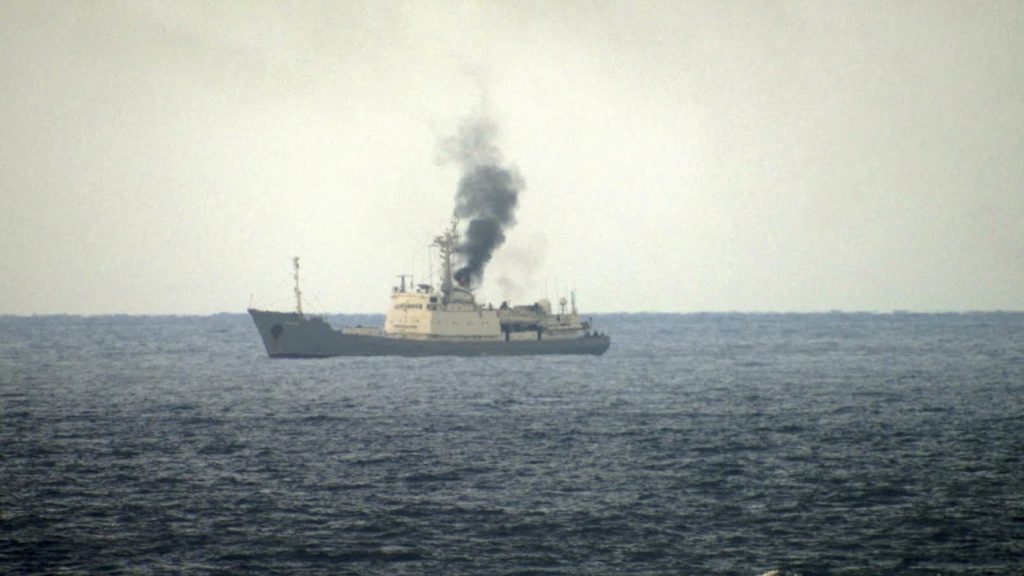On January 23, 2023, a distressing radio broadcast came from the Russian spy ship Kildin, which was drifting out of control off the Syrian coast. The vessel, noted for its intelligence-gathering capabilities, sent out an urgent message indicating that it was not under command and requested nearby ships to maintain their distance. Flames and black smoke were reported to be emanating from the ship as it struggled with an onboard fire, which lasted for at least four hours.
The audio of the distress call was obtained by the Associated Press (AP) along with video and photographs capturing the scene. Military officials from NATO countries, who remained anonymous due to the sensitive nature of the information, confirmed that these materials were gathered by a NATO ship in proximity to the Kildin. They expressed concerns regarding the implications of the fire, considering the heightened tensions relating to the war in Ukraine and the monitoring of Russian naval activities in the Mediterranean.
The Kildin, a 55-year-old vessel, has been involved in collecting intelligence on NATO operations in the Mediterranean and was reportedly near Turkish naval exercises prior to the incident. Despite the fire, the crew failed to respond to offers of assistance from a nearby NATO ship, indicating a degree of operational secrecy. The Kildin is believed to have also displayed two black balls from its masts, signaling that it was incapacitated. Eventually, the crew regained control of the vessel, and it remained stationed near the Syrian port of Tartus alongside a frigate and a supply ship. The cause of the fire, however, remains unclear.
Kremlin spokesman Dmitry Peskov denied any knowledge of the Kildin fire, downplaying its significance by suggesting that relying on the issues of a single ship to assess the overall readiness of the Russian naval fleet was unprofessional. Retired Vice Adm. Michel Olhagaray, a former chief of France's center for higher military studies, highlighted the logistical challenges Russia faces in maintaining a naval presence in the Mediterranean, particularly given the limitations imposed by the ongoing conflict in Ukraine and Turkey's restrictions on the passage of warships through the Bosporus Strait.
The audio captured a 75-second exchange between the Kildin and a Togolese-flagged cargo vessel named Milla Moon. In this communication, the Kildin initially misidentified itself as another vessel, the Sky, before revealing its true identity as a warship. The Kildin's crew requested the Milla Moon to steer clear, reiterating their drifting status and inability to operate the vessel. In response, the Milla Moon acknowledged the situation and agreed to adjust its course, concluding the conversation amicably.
Tracking data from ship-monitoring websites confirmed the Milla Moon's departure from Tartus on the same day as the Kildin fire, providing additional context to the incident. This situation occurs against a backdrop of increased vigilance by NATO members monitoring Russian spy ships, who are now deemed to pose a potential threat to critical underwater infrastructure in the Mediterranean region.
Overall, the fire aboard the Kildin has raised further questions regarding the operational capabilities of the Russian Navy, especially as it navigates complex geopolitical challenges far from its home bases in the Arctic and Baltic Seas.










